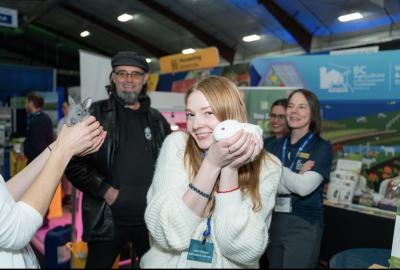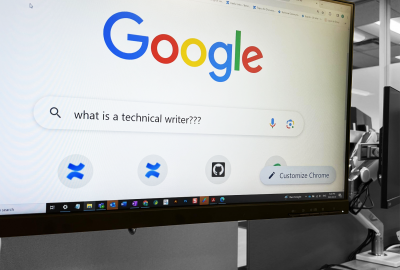
After Bradley’s initial interview with a Facebook Recruiter, he had two weeks to prepare for his “Portfolio Review”. A portfolio review is an interview where you go through your portfolio with your interviewer and discuss your work, the results of your work, and what you would change about it. The recruiter had briefed Bradley to focus on his deliberate decision-making skills, and to always have a reason with every decision you make.
Because the recruiter had given Bradley an outline of what to expect for this interview, he was able to cater his preparation with these insights in mind. Bradley wrote a script of exactly what he wanted to say and what he wanted to cover, basing his content on what the recruiter had outlined. In his script, he wrote an explanation of the project, the steps, and the critique of his own project. He worked hard to incorporate all that he wanted to say into his script, and rehearsed it repeatedly. He understood his projects thoroughly and knew every detail about them. He was certainly prepared!
Although he had an outline of what his interviewers were going to be asking, there were still challenges. Again, this was a phone interview, but instead of one interviewer, he would be speaking to two. Phone interviews can be challenging because it can be hard to sense an interviewer’s reactions and also to decipher who would be speaking next. Let alone having to coordinate with two.
Bradley describes the main challenge to be the time constraint. He had 30 minutes to cover a lot of content, from introductions, questions, and explaining the product. Bradley said, “I ran into the problem of skipping over important information about how the project worked which lead to having to clarify how things worked. I ran out of time.” In retrospect, Bradley realized that “I probably should have consolidated and prioritized the important points and got to the product iterations faster.” When you work on a project very closely, it’s hard to take a step back and see the project from a broader perspective and to see it in its entirety. This experience taught him the value of starting with a broader approach, and then zeroing in on the details later on.
Although Bradley faced a tough challenge, he was able to demonstrate his skills in reasoned decision making and show his passion for the work he has done. Again, he showed his interviewers his potential and they wanted to interview him again. If you have a portfolio review interview coming up, be sure you prepare and know your stuff like Bradley did, but also keep in mind just how much of a challenge time constraints can be.
Did Bradley get the job? Find out in the last part of the series.


















